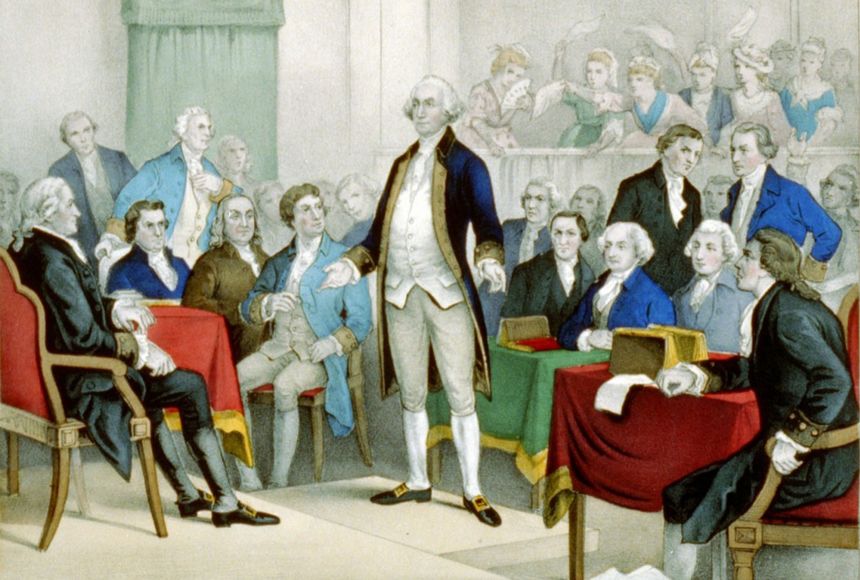ENCYCLOPEDIC ENTRY
ENCYCLOPEDIC ENTRY
Continental Congress
Continental Congress
The Continental Congress provided leadership during the American Revolution and drafted the Declaration of Independence and the Articles of Confederation.
Grades
5 - 8
Subjects
Social Studies, Civics, U.S. History
Image
Continental Congress Washington
In the 1770s, the Continental Congress, composed of many of the United States' eventual founders, met to respond to a series of laws passed by the British Parliament that were unpopular with many of the colonists.
Photograph by Universal History Archive

Media Credits
The audio, illustrations, photos, and videos are credited beneath the media asset, except for promotional images, which generally link to another page that contains the media credit. The Rights Holder for media is the person or group credited.
Director
Author
Production Managers
Program Specialists
Producer
Intern
other
Last Updated
October 19, 2023
For information on user permissions, please read our Terms of Service. If you have questions about how to cite anything on our website in your project or classroom presentation, please contact your teacher. They will best know the preferred format. When you reach out to them, you will need the page title, URL, and the date you accessed the resource.
Media
If a media asset is downloadable, a download button appears in the corner of the media viewer. If no button appears, you cannot download or save the media.
Text
Text on this page is printable and can be used according to our Terms of Service.
Interactives
Any interactives on this page can only be played while you are visiting our website. You cannot download interactives.